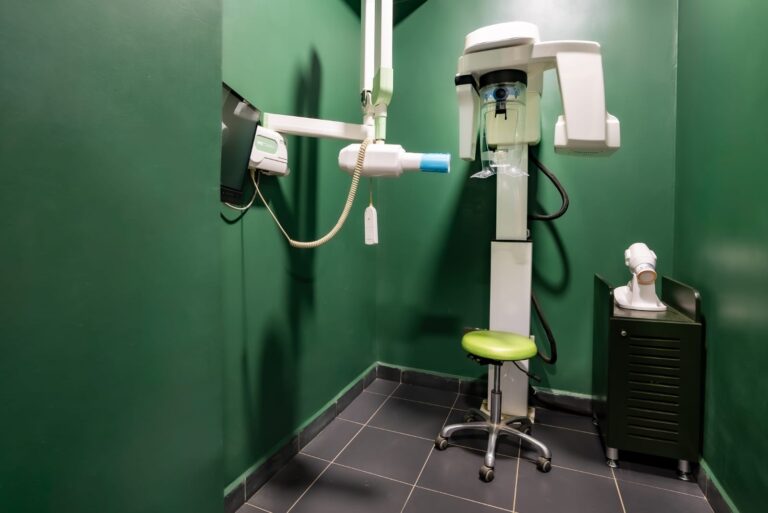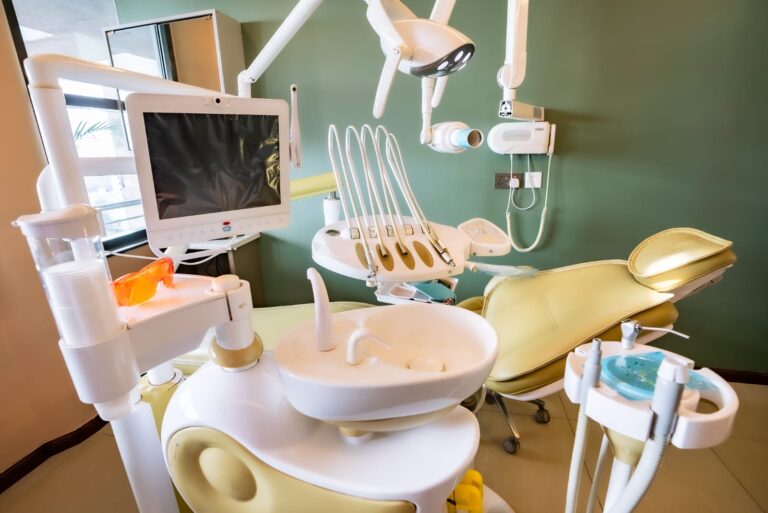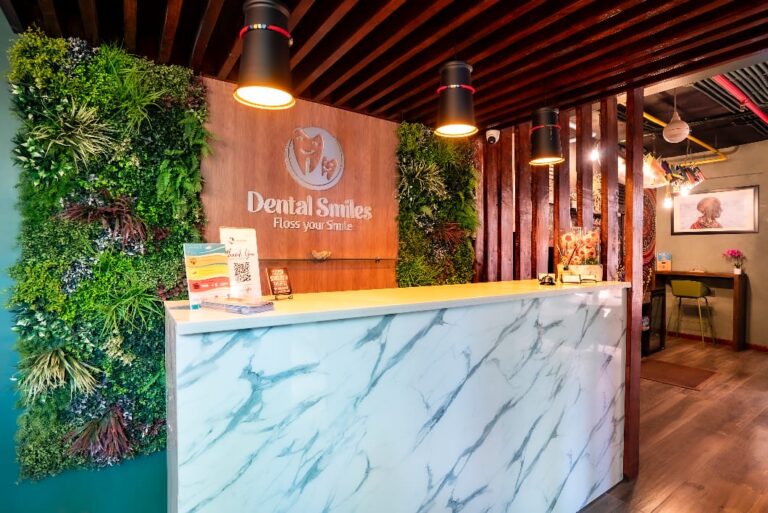Comprehensive Adults Dental Services
At Dental Smiles, we provide comprehensive dental services tailored for adults. Our modern facility is equipped with advanced technology, ensuring that your experience is both comfortable and efficient. Whether you’re seeking routine check-ups, cosmetic dentistry, or restorative treatments such as crowns, bridges, and implants, our skilled team is here to help you achieve and maintain a healthy, confident smile.
We prioritize personalized care, taking the time to understand your unique dental needs and goals, and offering solutions that fit your lifestyle and preferences. With a focus on quality and patient satisfaction, we’re committed to being your trusted partner in oral health. At Dental Smiles, we believe in empowering our patients with the knowledge and care they need to enjoy a lifetime of excellent dental health.

Dental Cleaning and Fluoride Treatment
Dental cleaning and fluoride treatment remove harmful tartar, preventing tooth decay and gum disease. Standard cleanings involve scaling and polishing, while deep cleanings address gum infection. Fluoride treatments and specialized toothpaste can help reduce tooth sensitivity.
DENTAL IMPLANTS
Implants are an effective option for replacing a missing tooth when restoration isn’t possible. Our highly skilled team specializes in all aspects of implant work, ensuring that patients remain comfortable throughout the entire process.
Cosmetic & WHITENING Dentistry
Cosmetic dentistry offers advanced treatments for a beautiful, healthy smile, addressing issues like missing, chipped, discolored, or crooked teeth. Our teeth whitening options, including in-office and at-home systems, provide effective results, with potential temporary side effects like sensitivity or gum irritation.
Root Canal Therapy
Endodontic (root canal) treatment removes infected pulp, clears infection, and protects the tooth from future issues. It treats damage from decay, disease, or injury, preventing abscesses, pain, and swelling. A crown is typically recommended afterward to restore strength.
teeth Whitening
At Dental Smiles, we offer the KOR® Whitening Deep Bleaching System and Opalescence Teeth Whitening Systems for both in-office and at-home treatments. Whitening works best for individuals with yellowish teeth, as it may have less effect on brown or gray tones. It also won’t affect composite fillings or bonded teeth, which may stand out after whitening.
Bonding Dental Treantment
Tooth bonding is the application of a tooth-coloured resin material using adhesives and a high intensity curing light. The procedure gets its name because materials are bonded to the tooth. Bonding is typically used for cosmetic purposes to improve the appearance of a discoloured or chipped tooth.See our Smile gallery
Emax veneers
Emax veneers are thin, custom-made porcelain shells bonded to the front of teeth to improve appearance. Known for their durability, strength, and natural-looking finish, they effectively address issues like discoloration, chips, and misalignment, offering a long-lasting, aesthetically pleasing smile enhancement.
Dental Crowns and Bridges
Crowns are ideal for covering up and protecting damaged teeth. We use lab-made porcelain crowns that look, feel, and function just like real teeth. A crown fits over your remaining enamel, covering up the entire tooth and restoring the natural appearance and function of the damaged tooth. Crowns also help protect your tooth from future wear and damage.
Orthodontic Braces
Orthodontic braces are a highly effective treatment for correcting misaligned teeth and bite issues, helping patients achieve a healthier, more confident smile. Suitable for both adults and children, braces address problems like overcrowding, gaps, overbites, underbites, and crossbites.
Dental Fillings Treatment
Fillings are a simple and effective way to eliminate cavities and restore decayed teeth. With a filling from our team, you can protect your tooth for the years and decades to come.
Dental Surgery and Extractions
Basic tooth extraction is a procedure that entails pulling a tooth that is above the gum line and is visible in the mouth. It is a relatively quick process that can be performed by your dentist in our office. During the procedure, one of our dentists will use various tools to lift and remove the tooth from its socket. The dentist may also use stitches to seal the gums after extracting your tooth.
FULL & PARTIAL DENTURES
Partial dentures are used to restore just a few missing teeth. They snap onto your remaining healthy teeth, filling up gaps in your smile. We also offer full dentures, which restore a full row of missing teeth. These are only a good option if you’ve lost most or all of your teeth. This is because you must have all of your remaining teeth extracted before you get full dentures.
Temporomandibular joint (TMJ) Treatment
TMJ treatment aims to diagnose and manage disorders of the temporomandibular joint, which can cause pain and compromised movement of the jaw. TMJ disorders can result from various factors such as injury, arthritis, or habits like teeth grinding.
INVISALIGN
At Dental Smiles, we offer Invisalign clear aligners, a more discreet way to straighten your smile compared to traditional metal braces. With a quick consultation and special imaging, our doctors can create a customized set of aligners for you to begin your treatment.
Gum or Periodontal Treatment
Periodontal treatment addresses gum disease to prevent tooth loss and support oral health. It involves scaling, root planing, and sometimes surgery to remove plaque, tartar, and infection. Early treatment prevents further damage and restores healthy gums and teeth.
Patient Testimonials
1
Play Video
Play Video
Play Video
Frequently Asked Questions
Do you accept Dental Insurance?
We accept most insurance plans and will gladly process your claim. Please bring the necessary information with you on your first visit. We participate with UAP, Madison, Cooperative Bank, Resolution, Kenbright, Pacific. For all other dental insurance plans, our staff will take care of the billing so that you receive reimbursement directly from the insurance company.
What modes of payment do you accept?
We accept debit/credit cards, cash (USD/KES), mobile payments (MPESA) and cheques (business only)
How often should i visit the dentist?
We recommend patients visit the dentist biannually for routine checkups and teeth cleaning (every six months).
What will my first appointment be like?
Congratulations on your decision to get started with us! During the new patient exam our doctors will do a very thorough exam. We will take X-rays and any necessary photos, and you and your doctor will review these together. Afterwards, our doctors will customize a treatment plan for you. Read more about your initial visit
Do you offer cosmetic dentistry?
Yes, Dr. Gitangu is an experienced cosmetic dentist. We offer a wide range of cosmetic dentistry services including E-Max veneers, teeth whitening, Crowns and Fillings
My teeth are discoloured brown and yellow. How can we fix them?
Your teeth can become discolored by stains on the surface or by changes inside the tooth. Some tooth discoloration can be removed with professional cleaning. An example would be the stains caused by food, plaque or coffee. Many stains are permanent, however. Teeth sometimes can be whitened with a bleaching gel in office or home bleaching. In some cases, if the discoloration is severe, a crown or veneer may be required to cover it.
I am missing a tooth and am considering an implant. What is the process for an implant?
Oftentimes, dental implants are the best restoration for a missing tooth. Our doctors will discuss your options with you in order to customize an ideal treatment plan. The implant process is relatively simple and requires two steps. First, the implant is placed into the tooth-socket where your tooth root used to be. Second, a restoration is created and placed on the implant to restore the crown of your tooth. For patients who are missing many or all of their teeth, implants may be the solution for restoring all of the missing teeth, offering great life-improvement. Sometimes, a few implants may be placed in order to stabilize floppy dentures, another terrific improvement in the lives of many denture-wearers.
Is it safe to go to the dentist during pregnancy?
Getting a checkup during pregnancy is safe and important for your dental health. If you’re pregnant and need a filling, root canal or tooth pulled, one thing you don’t have to worry about is the safety of the numbing medications your dentist may use during the procedure. They are, in fact, safe for both you and your baby. Routine dental x-rays should be deferred until after pregnancy.
How safe are dental x-rays?
With contemporary safeguards, such as lead aprons and high-speed film, the amount of radiation received in a dental X-ray examination is extremely small. Even though there is very little risk, pediatric dentists are particularly careful to minimize the exposure of child patients to radiation. In fact, dental X-rays represent a far smaller risk than an undetected and untreated dental problem.
What is fluorosis? and how can i prevent it?
Dental fluorosis is a condition that causes discolouration or mottling of the teeth, giving them a permanent, brownish colour. It is caused by overexposure to fluoride during the first eight years of life. Majority of Kenya’s underground (borehole) water contains high fluoride levels. For expectant mothers (or those hoping to be soon), getting your drinking water tested should be the first step in preventing your child from the effects of fluorosis. For those that are using borehole water with high levels of fluoride for COOKING and drinking, an activated alumina-Aluminium oxide filter can captures the fluoride and reduce the exposure to fluoride. Children younger than age 3 should use a “smear” of toothpaste containing fluoride, limit tooth brushing to 2 times a day for this age group. Children aged 3-6 years should use a slightly larger, “pea-sized” amount of toothpaste containing fluoride.
I’ve heard there is a link between unhealthy teeth and gums and heart disease. is this true?
You heard right. Studies implicate gum disease as a risk factor for developing heart disease. These studies show the bacterial infections of gum disease are associated with bacterial infection of the blood, inflammation, and a strong immune response, all of which are significant risk factors for the development of heart disease. Also, the most common strain of bacteria in dental plaque can cause blood clots that induces heart attacks when they escape into the bloodstream. Beyond heart disease, gum disease in pregnant women is considered a risk factor for low birth-weight babies. Proper brushing and yes, of course, flossing, combined with routine visits to your dentist help to reduce your risk of gum disease. Ask your dentist and hygienist if you are at risk for gum disease and what you can do to eliminate it.
I have always had sensitive teeth. The sensitivity is generalized, and it’s not constant, but it bothers me when i drink something cold. What is the best treatment for this kind of sensitivity?
Tooth sensitivity is a common problem. The reason and appropriate treatment depend on several factors. The causes for sensitivity can range from having cavities or cracks in teeth, worn teeth, sinus infections, gum recession, notching of teeth along the gum line, or other issues. Gum recession is a problem that can be caused by gum disease, aggressive tooth brushing, excessive force being applied to the teeth, or normal aging. As the gums recede, the root is exposed, and the tooth may become sensitive. In these cases, treatment can be as simple as using a toothpaste for sensitivity, regular fluoride rinses, or having your dentist apply a desensitizing agent to the root surfaces. Tooth notching can be caused by forces on the teeth, either from poor alignment, clenching or grinding, or a combination. The notches along the gum line can usually be filled in with a tooth-colored filling material, and your dentist has additional options to help prevent recurrence. Tooth sensitivity will not go away by itself, and because of the potential seriousness of the underlying causes, you should see your dentist if you have sensitivity problems.













